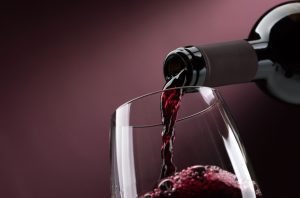Retailers sold 10 million fewer bottles of wine during the festive trading period than they did the previous year.
Spirits sales also declined by 7.1% in the 12 weeks leading up to Christmas, according to new figures from the Wine & Spirit Trade Association (WSTA).
That is equivalent to 7.7 million fewer bottles of spirits being sold, while beer and cider sales also slumped.
Industry leaders blamed the situation on the government’s decision to increase taxes last August.
Cash-strapped shoppers must now pay an extra 20% in tax on most bottles of wine and more than 10% on full-strength spirits.
They are already struggling to make ends meet amid a cost-of-living crisis, and they responded by cutting back on wine purchases.
The decision to increase taxes has ultimately backfired. The latest government figures show that tax revenues from wine and spirits sales declined by £436m year-on-year between September 2023 and January 2024.
When you add in the losses from beer and cider tax revenues, Treasury coffers were down by almost £600m.
The WSTA urged Chancellor Jeremy Hunt to rectify the situation by cutting alcohol duty and simplifying the tax system when he announces the Budget on Wednesday.
CEO Miles Beale said: ‘Wine and spirits businesses across the country are urging the government to do the right thing at the Budget this week: support British business and boost Treasury coffers by cutting alcohol duty.
‘Record high duty hikes last August have now been shown to achieve the exact opposite – and have instead fuelled inflation and significantly reduced excise duty receipts to the Exchequer.’
UK drinkers currently pay £2.67 in tax on a bottle of 12.5% abv wine, whereas the French pay just £0.03 per bottle.
The double-digit increase in August was the highest in almost 50 years. If the government announces another inflation-linked duty hike on Wednesday, the tax will increase to £2.80 on a bottle of wine and £8.71 on a bottle of spirits.
Retailers also hope that the chancellor will scrap plans to impose 30 different tax bands based on the strength of each bottle of wine.
Majestic Wine CEO John Colley said: ‘The proposed change from one duty band to 30 different bands based on abv will be bad for retailers, hospitality businesses, consumers and the wine industry. Common sense needs to prevail and this needs to be stopped.’
Colley warned that the proposed changes would lead to international wine producers avoiding the UK due to more red tape, which would reduce choice for British drinkers.
‘It is anti-business, anti-growth and anti-jobs,’ he said. ‘As the UK’s biggest wine retailer, we have serious doubts the systems required to administer the new taxes correctly are even possible to implement.
‘There would be substantial costs involved and no value to consumers, to businesses, or to Treasury coffers. The lack of understanding shown by the government in how wine is made and distributed is alarming.
‘This is not just about Majestic. The proposed policy will disproportionately hit small businesses, including the 900 independent wine merchants operating across the UK and the many importers dealing with the international wine trade. It will hammer high street retailers and hospitality venues, threatening growth and, ultimately, peoples’ jobs and livelihoods.
‘A cut in alcohol duty will boost revenue to the Exchequer, help support British businesses like ours and prevent further unnecessary price increases for consumers.’
Related articles
UK wine trade calls for duty freeze to prevent ‘budget busting price rises’
Scrapping EU wine laws offers ‘£180m boost’, claims UK government
UK government plans to allow alcohol-free drinks to be labelled ‘wine’
The post UK wine sales decreased by 10 million bottles in the build-up to Christmas appeared first on Decanter.
